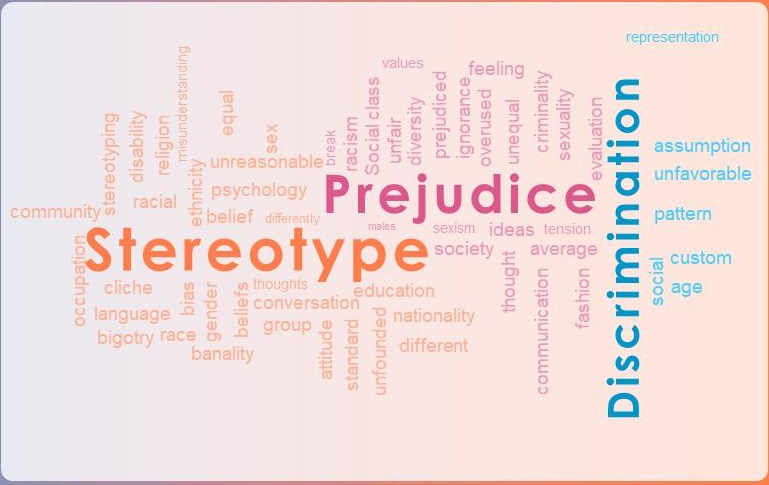Have you ever wondered how we form opinions about ourselves and other people? How do we make sense of the complex social world we live in? How do we decide what to do in different situations? These are some of the questions that social psychologists try to answer by studying social cognition and attitudes. Let's delve into these fascinating concepts by exploring real-life examples that illustrate their relevance in our everyday lives.
What is Social Cognition?
Social cognition is the area of social psychology that examines how people perceive and think about their social world. It involves various mental processes that help us simplify, organize, and interpret information about ourselves and others. For instance, think about the last time you met someone new at a party.
You most likely formed an opinion of them immediately based on their demeanor, actions, or words. Perhaps they were dressed wisely, smiled kindly, and made witty remarks. You quickly established a first impression of this person, which is social cognition in action.
Social cognition, however, is not always a perfect process. We occasionally rely on mental heuristics or shortcuts that can result in biases or errors. Think about the primacy effect. Imagine meeting someone who was initially distant but opened up and engaged you as the evening went on. The primacy effect, where our first impressions have a tendency to cling with us, may cause you to retain your initial impression despite their later warmth.
The fundamental attribution error is another prevalent bias. When we do this, we stop taking into account the context in which someone is acting and instead ascribe their actions to personality attributes. Consider how your first impression of someone who cuts you off in traffic can be that they are a risky driver. However, if you were rushing and made a similar move, you could blame outside factors for your behavior. We may navigate our conversations with more empathy and nuance if we are aware of these prejudices.
What are Attitudes?
Attitudes are evaluations of people, objects, or issues that influence our feelings, thoughts, and behaviors. The strength and direction of these assessments can differ significantly. Consider your attitude towards your favorite movie; it's most likely very favorable. On the other hand, you might have a bad opinion of a political party. Your attitude towards online learning may be a mix of both good and negative thoughts.
Personal encounters, social pressure, genetic inclination, and emotional responses all impact our attitudes. Additionally, they may alter in response to persuading arguments, cognitive dissonance, or societal expectations. For instance, you might alter your opinion of a product as a result of an alluring commercial or become aware of other people's viewpoints.
However, attitudes and behaviour aren't always in sync. Due to situational constraints, societal pressure, or the need to present ourselves in a specific way, we frequently act in ways that are inconsistent with our professed attitudes. For instance, you might publicly back environmental causes while yet choosing to drive a gas-guzzler out of convenience or other reasons.
Why are Social Cognition and Attitudes Important?
Understanding social cognition and attitudes is crucial because they shape our social reality and guide our social behavior. They affect how we think about ourselves and other people, how we interact with others, how we make decisions, and how we respond to opportunities and problems in life.
Think about the various aspects of life these ideas can be applied to:
Education: Teachers can benefit from knowing social cognition to establish inclusive classrooms and precisely pinpoint students' learning requirements.
Health: In order to promote healthy behaviors like immunization or quitting smoking, public health efforts rely on an understanding of attitudes.
Politics: Political campaigns employ social psychological concepts to sway public opinion and win over voters.
Essentially, social cognition and attitudes are not limited to the research lab or the classroom. They are tools that enable us to interact with others more effectively and empathically, promoting deeper relationships and developing a more peaceful society.
.jpeg)



The article is really insightful and engaging. It provided a unique learning opportunity by shedding light on the critical concepts of cognition and attitudes. Understanding the interplay between these two elements is undeniably important in comprehending human behavior and decision-making. Thanks for publishing such an interesting article Shreyansh!
ReplyDeleteA remarkably well-written Blog indeed! Social cognition and Attitudes have been properly judged by the author and also their importance have been highlighted, thus providing crystal clear insights about the same. Well done!!
ReplyDeleteGreat piece of art on the blog!! Explained important aspects of social psychology like attitude, social cognition!!
ReplyDeleteThe article effectively communicates the complexities of forming opinions about ourselves and others, delving into how social cognition influences our perceptions. By discussing biases like the primacy effect and fundamental attribution error, the author brings attention to the imperfect nature of social cognition. The practical applications highlighted, such as in education, health, and politics, underscore the relevance of these concepts in our daily lives.
ReplyDelete